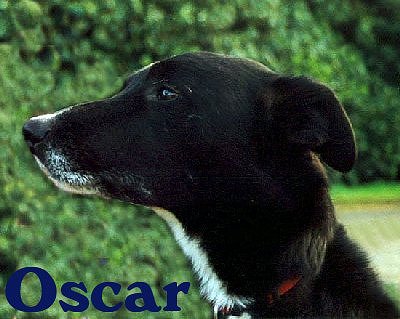Before a patient
signs a consent form for an operation,
s/he should ask for, and receive, a print-out of risks, common
complications,
and what changes one should expect after an operation, before
signing the purely bureaucratic consent form.
I have had two
operations in two different countries in the past two years.
The first, in Northern Ireland, was a double-cataract operation,
one of the commonest procedures in the world.
It was an out-patient procedure: I was in and out of the hospital
within 2 hours.

Despite being given a leaflet, I received scant information
of what to expect after each of the procedures, which took place
three months apart. I received a number of surprises,
and arrogant, unsympathetic "after-care" at an intimidating
modern hospital.
Two years after
my treatment, I was still suffering the consequences of diagnostic
and managerial ineptitude - at a different hospital 30 miles
(48 kms) away...
[read more]
The second operation was much more serious, but now almost
routine in rich countries.
I fell off a chair on to a tiled floor while changing a light-bulb
and broke the neck of my femur while I was in France.
This necessitated a hip replacement operation - total (posterior)
hip arthroplasty
and a week's hospitalisation.
The broken femur
was sawed (I smelled the burning during the operation),
and the ball & neck replaced by a metal prosthesis,
which has to be hammered down into the femur
after the marrow is scraped out. I felt the hammering, too,
in my morphine-haze..

I had a charming
surgeon who told me before the operation
that I "would be on my feet" in a couple of days,
and walking within a week.
This was the sum and total of the information I received.

My scar is 20 centimetres long.
Nurses, when
I questioned them, seemed to have received mixed messages,
both about what was going on and about how much they should
tell patients.
I had to watch the youTube
video to find out what had been done to me
(and since there was no wi-fi in the hospital, this was
over a week later).
I received
little dribs and drabs of information by accident from hospital
staff,
includingthe gung-ho physiotherapist, and the cautious physiotherapist,
each of which devoted 20 minutes of their time to me.
Really, the only
reliable source of information is via the Great Google in
the Sky.
When I thought
I was to be discharged, it transpired 5 minutes beforehand
that I was merely going to be transferred to a physiotherapy
unit.
At this point I had had enough : no wi-fi, truly disgusting
food
(over half of which went straight down the toilet),
occasional patronisation from callow young nurses.
So I insisted on going home, which caused quite literally a
panic,
with the surgeon being summoned.
He begged me to
remain one more night (in a different room
in a different part of the hospital)
so that he could prepare for my home-care.
I relented and endured another round
of 1950s-style hospital slops, not a green or salad vegetable
in sight.
This transpired
to be a list for a pharmacy which included an orthopædic
bed !
This of course, I refused, since I was able easily to create
a hoist in my upstairs bedroom with a rope from the boot/trunk
of my car, and a big hook in the wall opposite the foot of the
bed, so that I could haul myself up and slide myself off the
end of the bed - in fact a better arrangement than the hospital
hoist.
Also on the list
were a walking-frame and two elbow-crutches.
I took only a single elbow-crutch,
since the bill already came to €400!
This included a handy (though expensive) raised toilet-seat,
which replaced one nasty shiny cheap-looking plastic one which
I had intended to replace.
(Most manufactured things in France are two or three times the
price of identical ones in neighbouring countries,
from car-tyres to lavatory-seats. The exceptions include fresh
food, postal services, wine and most prescription pharmaceuticals.)
The day
after I got home, a nurse arrived to instruct me on
how to inject myself daily with the anti-thrombosis
product which the surgeon had prescribed for 40 days
rather than the usual 21. She also changed the dressing
on my operation-scar.
I had
progressed very well after the operation. Being a healthy
vegetarian male weighing 60 kilos (135 pounds),
I needed a walking frame only for half a day in the
hospital, and then progressed to a single elbow-crutch.
I was able to walk upstairs as soon as I got home, though
I left the concrete steps down to the cellar for several
days before attempting them.
Nurses
came four or five times during the following fortnight.
They had to be paid for, so I dismissed them as soon
as I felt able to. A few days later I made the 14-hour
journey to Northern Ireland. This involved 2 cars (one
of which I drove), 2 trains, an aeroplane and a bus.
None of these presented much difficulty: that came with
the now-ritual American-demanded "security"
pantomime at the airport.
Naturally,
having a titanium-vanadium top to my femur I made the
bell sound in the yoke they make us pass under - very
symbolic - especially as the number of Americans killed
by terrorists since 2001 is less than 100, while the
number of Americans killed by guns by other Americans
within the USA is in the tens of thousands). I was asked
to remove my laced shoes. I told the guard that I couldn't
without sitting down because of my recent hip-operation.
He became angry, called for reinforcements, and someone
kicked my crutch away from me. I fell to the ground.
I yelled. I made a scene in front of dozens of onlookers,
I told them that they were goons and little Hitlers.
They took down my passport details, and let me go after
a full frisking during which I made to remove my trousers
so they could explore my rectum. They quickly finished.
I then went straight through the police passport check.
I got
to my destination in Northern Ireland at 10 pm, having
started the journey at 8 am.The journey and the fall
impeded my progress for a while, but I soon recovered.
It was
not until I went to see a physiotherapist (who complimented
me on my mobility - as my surgeon had complimented me
on my leanness - but admonished me for my impatience)
that I learned that I would not be walking properly
for five months - and that my right leg was over one
centimetre shorter than my "good" one. It
was from her that I also learned how best to get into
a car - a tricky, dsngerousand painful procedure on
which of course neither my surgeon nor the French nurses
had advised me.
Very soon
after this my hip started to swell and seem inflamed.
But there was no infection. My general practitioner
didn't even ask to see it. I put an ice-pack on it at
night, to no avaul. I applied antiseptic cream and padding.
On removing this, I discovered a hole in my scar. I
had wondered why the sheet of my bed was damp. From
this hole liquid had oozed.
I went
to the emergency room of the local hospital before midday,
and after "only" a couple of hours' wait I
was told that I likely had a seroma.
This complication, though not uncommon, was not
explained. But via the Great Google in the Sky I learned
what it is.
Another
complication, not entirely confined to healthy males
who live alone, is Post Operative Depression. This I
also read about on the web after I started doubling
my anti-depressant and mood stabiliser.
So you
see why I think that patients should be offered a comprehensive
list of what an operation involves (from simple self-injection
and the requirement of a raised lavatory-seat to the
not-uncommon complications that could arise and the
prognosis for the patient involved, from healthy vegetarian
male to obese, elderly, meat-eating female)
|






